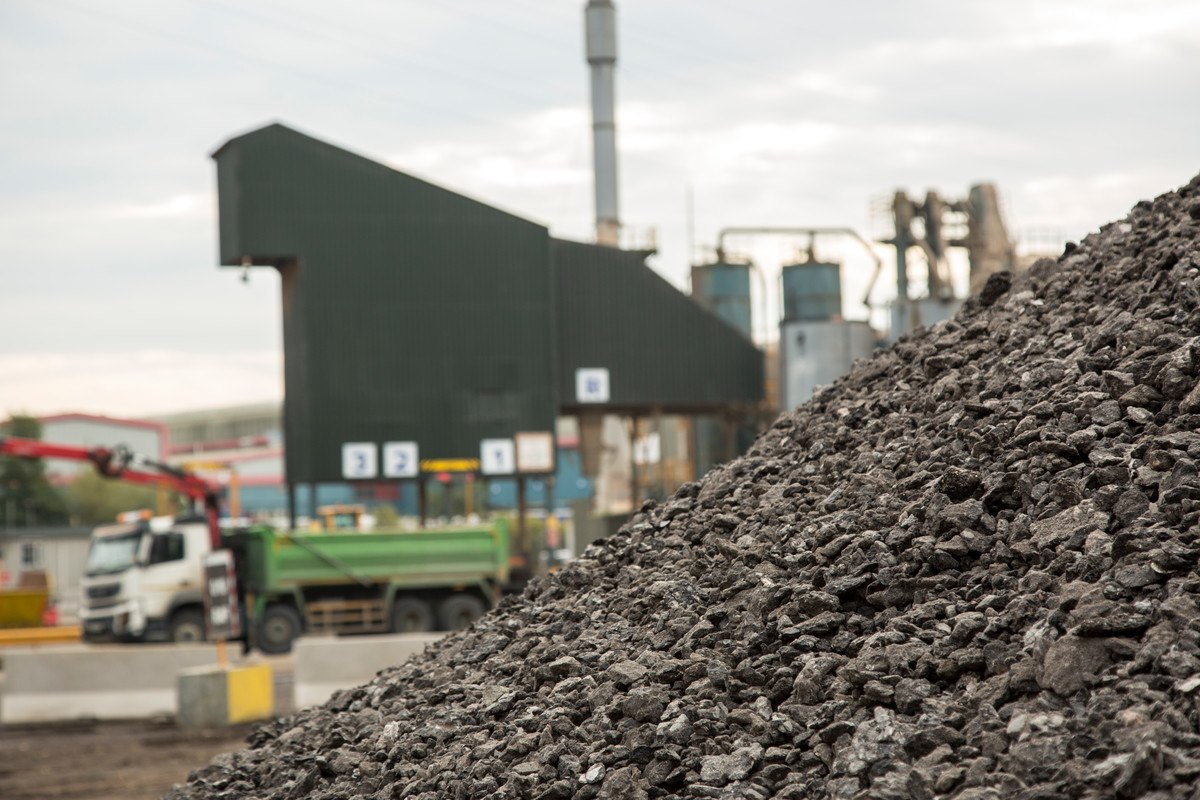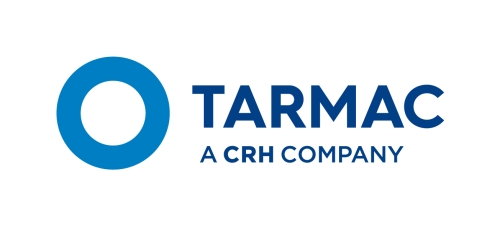resource efficiency
“Solid Recovered Fuel is an excellent fuel for the cement process and has been used at our other cement plants in Derbyshire and South Wales for years. We are pleased to be adding it to the range of waste-derived fuels supporting our operations at Dunbar, reducing our emissions and dependence on fossil fuels and making a significant difference to the sustainability of our operations.”
Oliver Curtin, Dunbar plant manager
Supporting a circular economy, where waste is eliminated and resources remain in high value use for as long as possible, is critical for the long term sustainability of the UK construction sector.
highlights
By developing business models that keep resources in use, we are continuing to make a significant contribution to the efficient use of resources and to the circular economy. By re-using materials that would otherwise be disposed of as waste, we can not only divert them from waste streams but also we can reduce the carbon footprint of products and promote resource efficiency. As a business we are a net user of waste and secondary materials, using more of other people’s waste than the waste we produce ourselves.
In 2019, we used 8 million tonnes of waste and secondary materials from other sectors as raw materials in our products and as fuel for our manufacturing processes. We only sent around 10,000 tonnes of waste to landfill, which accounts for just 2.1% of the waste we produce from our operations, the rest is recycled.
| Type | Tonnes | % |
|---|---|---|
| Hazardous waste to landfill | 1,932.50 | 0.41% |
| Non-hazardous waste to landfill | 6,928.40 | 1.46% |
| Inert waste to landfill | 1,142 | 0.24% |
| Hazardous waste recycled | 15,596.50 | 3.28% |
| Non-hazardous waste recycled | 289,669 | 60.90% |
| Inert waste recycled | 160,415 | 33.72% |
| Total Produced | 475,682 | 100% |
| Total Recycled | 465,681 | 98% |
| Total Produced | 10,003 | 2% |

We use wastes from other industries as part of our comprehensive waste-derived fuels programme within our cement business. In 2019 we have increased the amount of waste used to heat our cement our kilns to 108,000 tonnes. Our Cement and Lime business is aiming to further boost the sustainability of its operations at Dunbar cement plant by agreeing a contract with leading Scottish resource management company, Hamilton Waste and Recycling, to begin using Solid Recovered Fuel (SRF) at the plant. This will enable us to increase the proportion of sustainable fuels we use; harnessing valuable energy, reducing our carbon footprint and significantly decreasing our reliance on fossil fuels.
Tarmac is one of the largest recyclers of construction and demolition waste and supplier of recycled aggregates in the UK, operating 39 recycling depots across the country to collect and process construction, demolition and excavation waste generated by other businesses.
We use recycled aggregates and materials in the manufacture of our ready mixed concrete. This includes granulated blast furnace slag (GGBS) from the iron and steel industry, fly ash from coal-fired power stations as cement substitutes, and slag aggregates. Our recycled aggregates are also used in sub bases and fills to replace primary aggregates.
We also use RAP (Recycled Asphalt Planings) in the manufacture of our asphalt products. In 2019, we recycled over 902,000 tonnes of asphalt as RAP in our products, this represents a contribution of 22% against total asphalt production. This year our Highways Services team was awarded a top environmental award at the annual Considerate Constructors Scheme’s 2019 National Ultra Site awards. The Environmental Best Practice Award was given for the innovative way we recycled hazardous road surfacing materials which contained tar whilst delivering the highways term maintenance contract for Nottinghamshire County Councill (NCC) and its highway services company, Via East Midlands Ltd.
Our latest solution to incorporate more recycled materials in our products, is a new asphalt technology that uses rubber from recycled waste tyres. It works out that for approximately every kilometre of highway surfaced with the rubber modified asphalt, 750 waste tyres are used. With the UK producing 40 million tyres each year, it is a technology with incredible potential for improving the environment.
Along with this we have also added a new concrete to our product range that uses recycled composite luminescent chippings. The chippings work by absorbing natural and artificial UV radiation during the day and radiating it at night to light up pathways.
The vast majority of our products are delivered in bulk to customers, which means we use relatively little product packaging. But where packaging is required, we try to minimize it.
| Type | Packaging Supplied (Tonnes) |
|---|---|
| Paper | 1,364 |
| Plastic | 3,729 |
| Wood | 8,800 |
| Metal | 0 |
| Total | 13,841 |
During 2019, our cross-business plastics working group continued to focus on reducing the use of plastic across Tarmac. The group have been reviewing the findings of multiple projects that are in progress across the business to reduce the thickness of the plastic packaging needed and increase the recycled content of the plastic used.
For a small proportion of products, plastic packaging is used when delivering products to customers. This is for safety reasons at our customer’s sites, to protect product integrity, to protect products from the weather and to reduce wastage. At present, plastic packaging remains the most sustainable option. However, we have taken steps to reduce the thickness of plastic packaging and to incorporate a high level of recycled plastic where possible.
Our employees have also taken action at our operational sites and offices, removing ‘single use’ plastic cutlery, coffee cups and drinks bottles and replacing them with reusable alternatives.
We also play an important role in recycling society’s low value, end-of-life plastic waste plastic as a raw material or as a Solid Recovered Fuel (SRF), when other recycling options have been exhausted. This helps to prevent these plastics from entering the environment.
Water is essential for many of our manufacturing operations. With the demand for water continuing to increase in the UK, as the population grows and the need for industry to adapt to the potential impacts of climate change, water availability will be under increasing pressure. Water conservation therefore forms an important part of our resource efficiency programme and our efforts to move to a more circular economy.
We continue to use water management plans at our sites as part of our progress towards our target to cut abstracted and mains water by 25% by 2020. The plans analyse the movement, abstraction, discharge and use of water at a site, identifying opportunities to reduce water use as well as risks posed in terms of water shortages, floods and pollution incidents.
During the year, we used a total of 19.2 million cubic metres of water, of which 15.9 million cubic metres were abstracted from groundwater and surface water sources , 2.8 million cubic metres from potable water supply and about 0.5 million cubic metres derived from recycled water systems.
Alongside our efforts to reduce resource consumption in our operations, we have started to look at how we can make improvements in our offices. We launched a communications programme which aimed to raise awareness, empowering colleagues to take action and celebrating the improvements that had already been made. The programme covered 3 main areas: water, waste and energy. We encouraged colleagues to come up with ideas for how they can reduce the use of these finite resources in their offices. One of the key actions implemented by many of our offices was to encourage the switch from single use plastic cups to a reusable water bottle.
